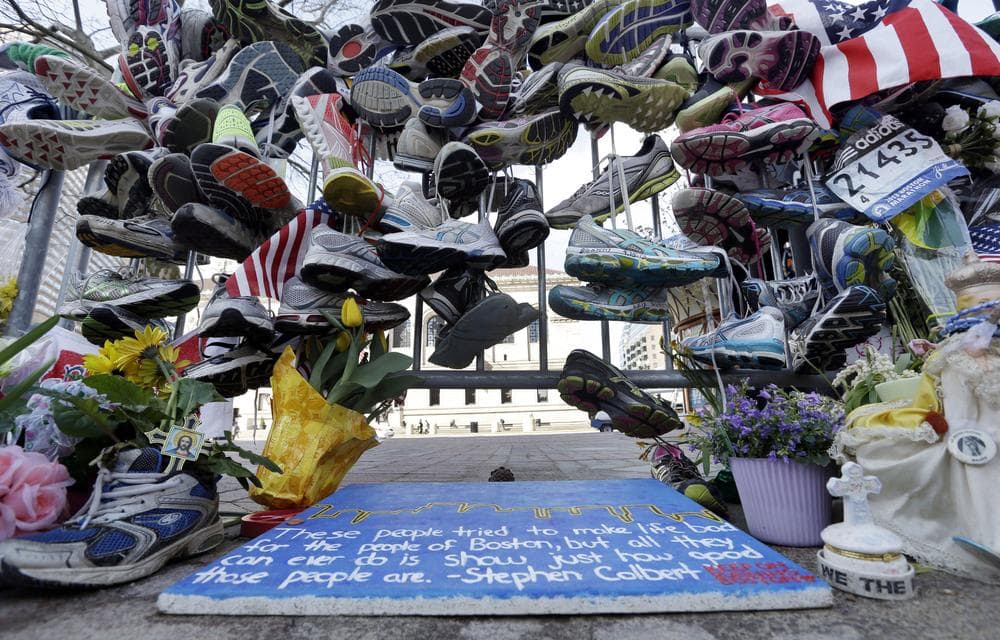Advertisement
Running The Marathon Next Year? Not So Fast...
Resume
Vice President Joe Biden, speaking at the memorial for slain MIT police officer Sean Collier had some confidence-boosting words for the city's runners yesterday: "I am absolutely certain that next year's Boston Marathon will be bigger, more spectacular and attended by more people than any marathon in the history of the United States of America, because that's who you are."
We've heard a lot of that recently, particularly folks around town making this pledge: "I've been thinking about running a marathon, and this has made me determined to run in next year's Boston Marathon."
But not so fast. First of all, the Boston Marathon is one of the only races in the country with qualifying times just to enter the race. Only the Olympics is tougher to enter.
Just to get in, you have to have run another marathon in the same calendar year, with an official time of about 3 or 4 hours, depending on your age and gender.
And second, showing your solidarity by running 26.2 miles may not be the best thing for your health.
Guests
Carey Goldberg, co-host of WBUR’s CommonHealth blog
More
WBUR "Here’s your reality check: In order to qualify if you’re a male between 18 and 34, you need to make a time of three hours and five minutes; then the scale slides and at the other end of the range, it’s five hours and 25 minutes for women 80 and older. (Note to self: Hey, maybe if I train for decades…)"
This segment aired on April 25, 2013.